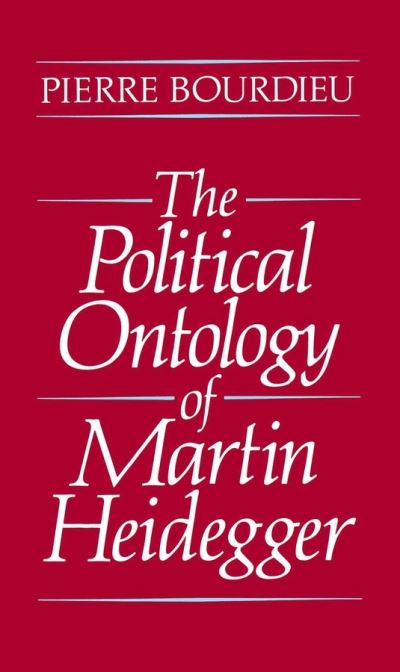
This book is an important and timely contribution to the debate concerning the relation between Heidegger's philosophy and his political affiliations to Nazism. But it is more than that: it is also a study, by the leading sociologist in France today, of some of the institutional mechanisms involved in the production of philosophical discourse.
Drawing on his distinctive methods of analysis, Bourdieu argues that philosophical discourse - like all discourse - is the result of an interaction between an expressive drive and the censorship generated by the social field in which it is produced. Hence, to understand Heidegger's work, it is necessary to reconstruct the logic of the philosophical field in early twentieth-century Germany and its relation to the broader social and political fields of the Weimar Republic. In this way Bourdieu is able to shed fresh light on Heidegger's philosophical language and orientation, while steering clear of the partisan judgements adopted by those critics who charge him with an apologetics for Nazism or those who seek to redeem him at any cost.
The Political Ontology of Martin Heidegger will be of interest to students and scholars in philosophy, literature, and social and political theory, as well as to anyone interested in the controversy surrounding Heidegger and his links with Nazism.
| ISBN: | 9780745617145 |
| Publication date: | 5th March 1996 |
| Author: | Pierre Bourdieu |
| Publisher: | Polity Press |
| Format: | Paperback |
| Pagination: | 148 pages |
| Genres: |
Philosophy |